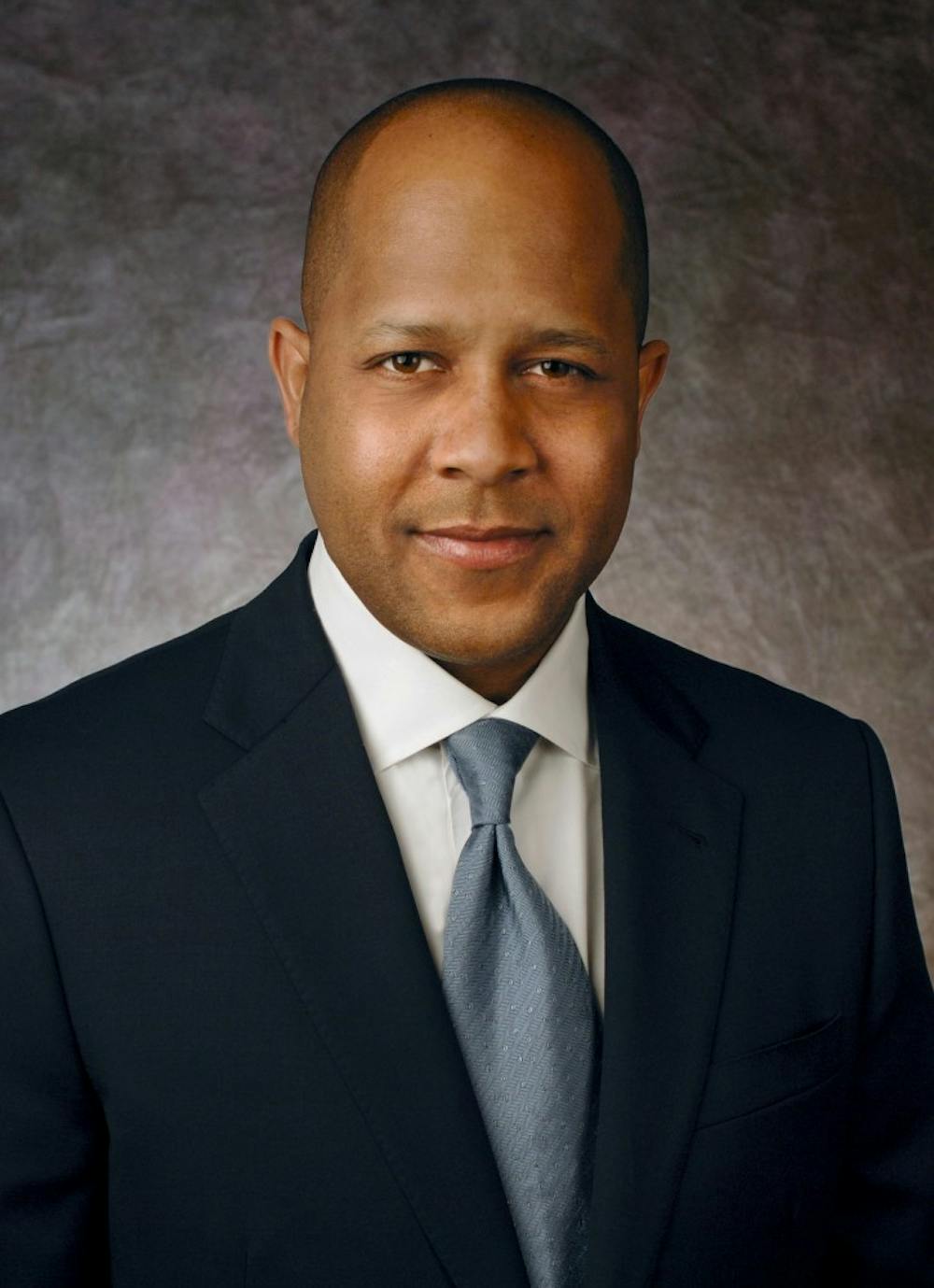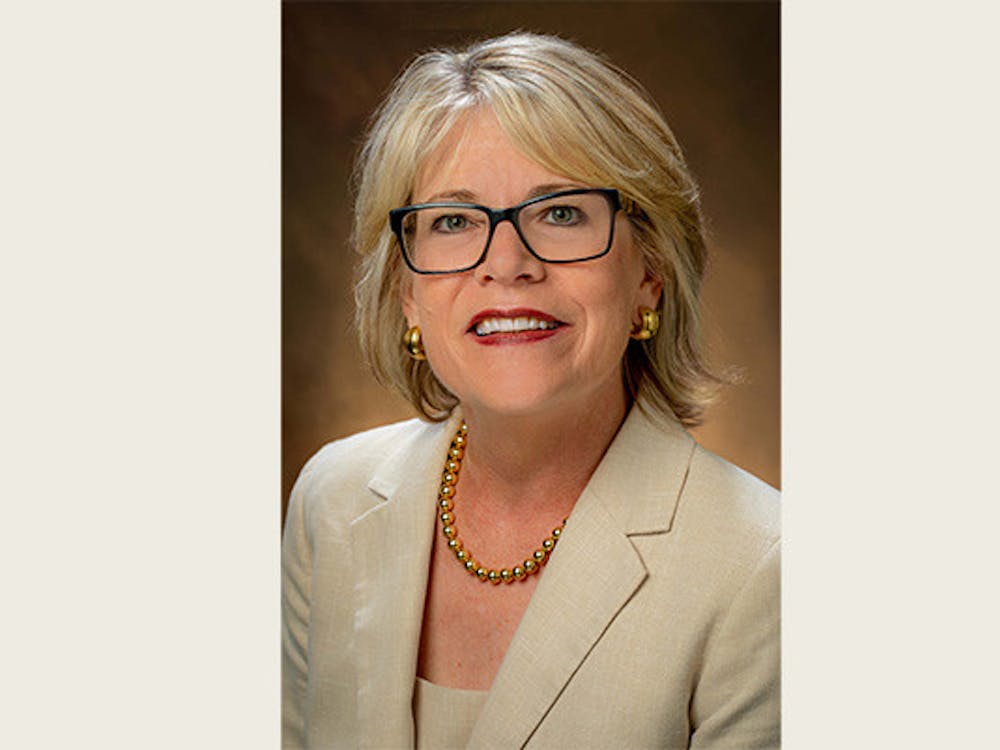Before Jeff Pegues glossed television screens across the country as CBS News' Justice and Homeland Security correspondent, he was a football player at Miami University with a pre-med major with his eyes set on the NFL.
Then, he realized football hurt.
And, if he was being completely honest, he really wasn't that good.
After nixing football, Pegues began to question what he wanted to do.
"How can I use the skills I have and make a career out of them?"
He wanted to play football because as a child who grew up all over the place, Paris, Nigeria and the Philippines, he wanted to be as American as he could be. But, maybe there was another way to express his patriotism?
At the presentation and signing for his new book on Monday in the Shriver John Dolibois room, Pegues, Miami class of '92, expressed that he learned early on that pre-med was the career his parents wanted for him, but not what he was passionate about.
Now, without football in the picture, he needed to figure out what it was he wanted to do with his life.
That's when he discovered, along with the help of his former Miami professors, a passion for broadcast journalism. He wanted to help the "little guy" and work for the betterment of society.
"I care about this democracy," he said, "I've lived overseas, I know the pluses and minuses of most of the countries I've lived in and I love this country and I love what it stands for."
Democracy is a word that has been tossed around a lot throughout special counsel, Robert Mueller's Russia investigation. And, democracy is also what prompted Pegues to dive into how Russia had undermined it during the 2016 presidential election and beyond.
In his new book, Kompromat: How Russia Undermined American Democracy, Pegues discusses how Russian hackers were able to influence the American news cycle and affect the way we voted at the polls through manipulating our social media feeds.
Enjoy what you're reading?
Signup for our newsletter
These cyber "trolls" were trying to stir up hate in our country and increase partisanship, Pegues said.
Russia knew the United States wasn't politically united and Putin took advantage of that.
Many people have written off the Russian investigation's findings as "fake news." Pegues encountered one such man who confronted him at a Buffalo Wild Wings insisting that the media is being paid to tell lies.
"It is not about politics," Pegues said. "A foreign adversary is trying to influence how you think. If we weren't in this highly charged political atmosphere, 99.9 percent of Americans would care. Now they don't want to believe it because they think you have an ulterior motive."
But Kompromat shows that this is bigger than political parties.
In fact, it has nothing to do with them at all.
This is is about Vladimir Putin's ability to change how Americans think, so he can, in turn, change how we vote.
Pegues argued that this issue is bigger than Watergate, and everyone in Washington knew about it but were too afraid to speak up.
"There are too many people right now not telling it like it is," Pegues said.
That's why his new book sticks to the facts. It is a warning of how fragile our democracy is and how much worse it could get if the next generation fumbles the ball.
So, how do the Millenials and Gen Z'ers keep their heads in the game, if social media is constantly influencing the world around them?
Young people must do everything they can to protect themselves, Pegues said. Whether that means, using encrypted messaging apps, ensuring that all accounts require two-factor authentication and even, avoiding social media sometimes all together.
While the Russian investigation may seem like something in the distance to students in small-town like Oxford, Pegues reminded his audience that, "Washington is not some far away place that you can't control."




